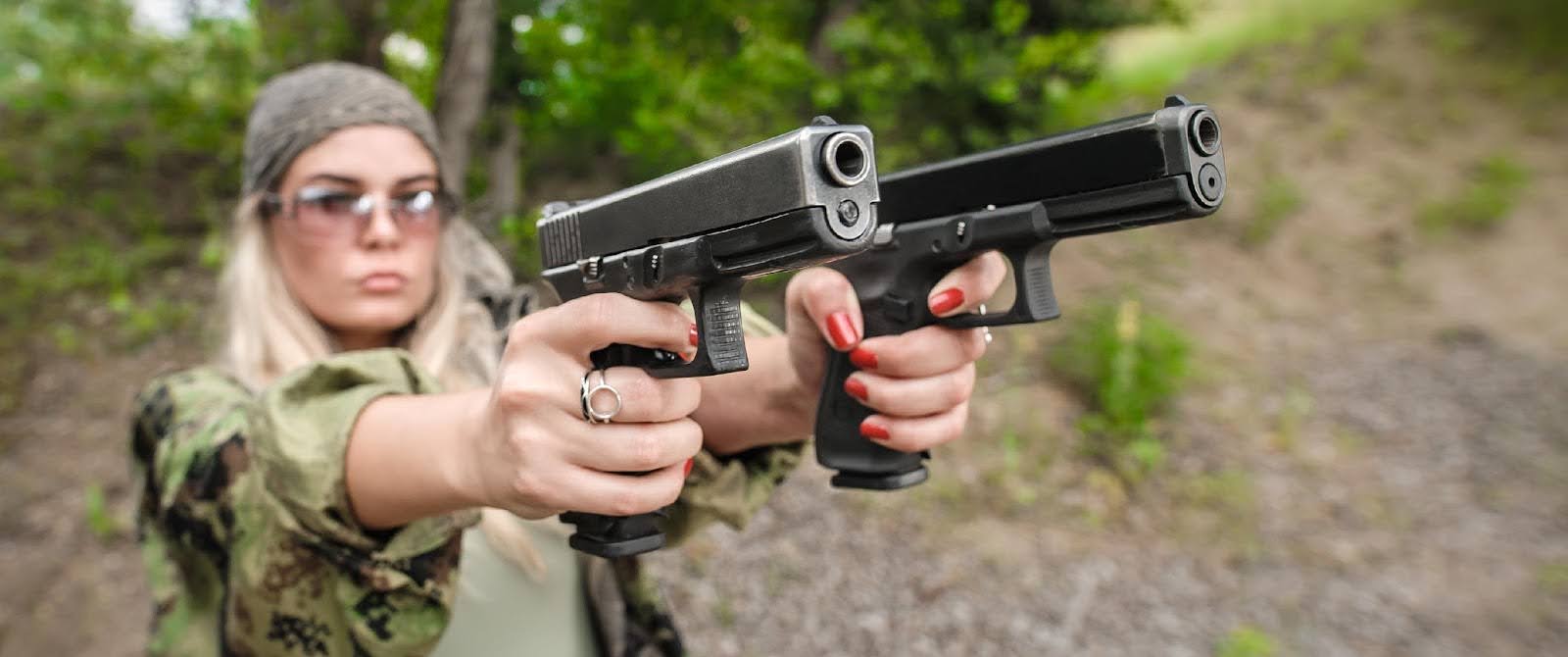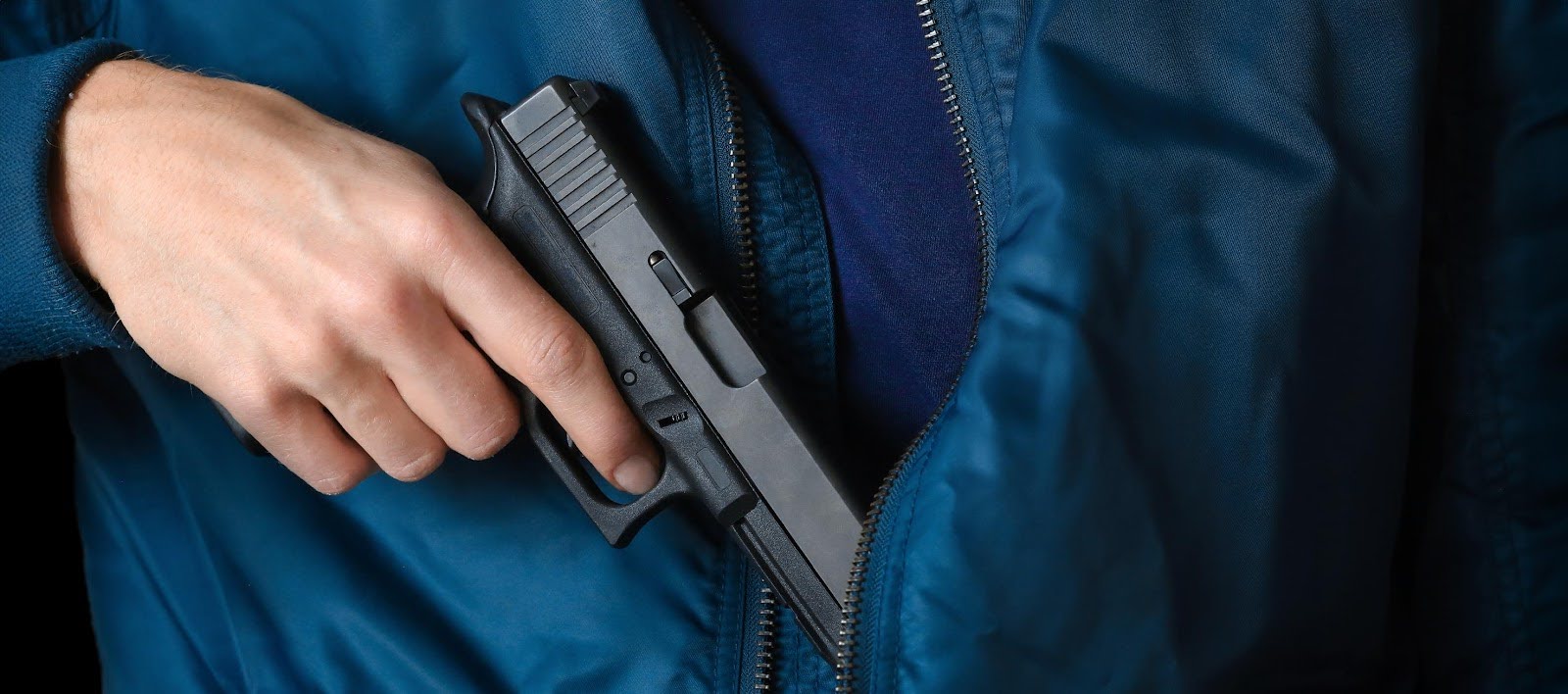Understanding Arizona Crimes Involving Weapons

Facing Arizona weapons charges is overwhelming. The legal system is complex and can be intimidating. Understanding the specifics of the crime and the potential penalties if convicted are important steps in navigating the legal system.
Lawyer Listed created this guide to provide you with a detailed overview of the most common Arizona crimes involving weapons. It explains key terms and sentencing guidelines. It also answers frequently asked questions about these charges.
Remember, this information is for educational purposes only and is not a substitute for legal advice from an experienced Arizona criminal defense lawyer. If you are facing Arizona weapons charges, consult with a qualified Arizona criminal attorney as soon as possible. Lawyer Listed simplifies this process by matching you with an elite criminal defense lawyer tailored to your case.
Key Concepts of Arizona Violent Crimes:
- Intentionally or with intent to means that there was an objective to cause a result or engage in a specific conduct. In other words, you meant to do it.
- Knowingly means that you were aware of your actions or the circumstances that make up the offense. It doesn’t require that you knew your conduct was illegal; you just needed to be conscious of what you were doing or the situation you were in.
- Reckless means being aware of and willfully disregarding a substantial and unjustifiable risk, which results in harmful consequences.
- Criminal Negligence means a failure to recognize a serious risk of death, acting in a way that was a major departure from reasonable behavior.
- Deadly weapon means anything designed to kill, like a firearm.
- Dangerous instrument means anything that under the circumstances in which it is used, attempted to be used or threatened to be used is readily capable of causing death or serious physical injury.
- Dangerous offense means an offense involving the discharge, use or threatening exhibition of a deadly weapon or dangerous instrument or the intentional or knowing infliction of serious physical injury on another person.
Disorderly Conduct Involving Weapons: ARS 13-2904 (6)

A charge of disorderly conduct with a weapon in Arizona is defined under ARS 13-2904(6) and involves recklessly handling, showing, or firing a firearm or another dangerous instrument with the intent to disturb the peace.
To be convicted of disorderly conduct with a weapon, the prosecution must prove the following elements of the crime:
- Intentionally or knowingly disturbing the peace of a neighborhood, family, or person; and
- Recklessly handling, displaying, or discharging a deadly weapon or dangerous instrument.
Misdemeanor vs. Felony Charges
The severity of a disorderly conduct charge under ARS 13-2904 depends on the specific actions involved. Most disorderly conduct offenses are misdemeanors.
Misdemeanor disorderly conduct includes knowingly disturbing the peace by:
- Fighting or engaging in other violent or disruptive behavior.
- Making an unreasonable amount of noise.
- Using offensive language or gestures that are likely to provoke a violent reaction.
- Creating a loud disturbance to disrupt a lawful event or meeting.
- Refusing to obey an order to leave an area near an emergency for safety reasons.
However, when a deadly weapon or dangerous instrument is involved, the charge becomes a Class 6 felony.
Penalties for ARS Assault
If you’re convicted of disorderly conduct under ARS 13-2904, a judge will look at what you did, whether a weapon was involved, what kind of weapon it was, and your past criminal record. The following table summarizes the potential sentences for disorderly conduct:
| Charge | Class | Prison/Jail | Probation (max) |
|---|---|---|---|
| Disorderly Conduct with Weapon | Class 6 Felony | Prison: 0.33 – 2 years | 3 years |
| Disorderly Conduct | Class 1 Misdemeanor | Jail: up to 6 months | 3 years |
Frequently Asked Questions (FAQs)
A: Acting recklessly means you ignored the risk your actions created, such as waving or firing a gun in public, even if you did not intend harm.
A: Yes. Simply handling or displaying a weapon in a way that disturbs others can be enough to be charged with misconduct involving a weapon.
Unlawful Discharge of a Firearm: ARS 13-3107

Unlawful discharge of a firearm Arizona under ARS 13-3107 makes it illegal to fire a gun within city limits. This law is also known as Shannon’s Law because of Shannon Smith, a 14-year-old girl killed by a stray bullet in Phoenix in 1999. Her death led to stricter rules about when and where guns can be fired.
To be convicted of unlawful discharge of a firearm, the prosecution must prove the following elements of the crime:
- Firing a gun with criminal negligence;
- The gunshot was within city limits; and
- None of the exceptions apply.
Shannon’s Law AZ specifically targets random gunfire in populated areas. Before this law, people often fired guns into the air during celebrations. They thought bullets shot straight up were harmless. Unfortunately, those bullets come down somewhere, and they can kill. That’s why Shannon’s Law makes any gunfire within city limits a serious crime.
Exceptions to the Rule
While firing a gun in the city is generally illegal, there are specific situations where it is allowed under ARS 13-3107. It’s important to know that you have to prove your actions fit one of the following exceptions – it’s not automatic.
- Self-Defense: You can use a gun to protect yourself or someone else from what you reasonably believe is an immediate danger. You must be able to show that using deadly force was necessary at that moment.
- Firing Ranges: It is legal to fire a gun at a properly supervised shooting range. The range must have strict safety rules and be connected to a recognized shooting organization.
- Hunting: If you are hunting legally during the proper season and following all the rules from the Arizona Game and Fish Commission, you can discharge a firearm. This includes having the right licenses and hunting in designated areas.
- Controlling Nuisance Wildlife: In some cases, you can fire a gun to control nuisance animals. You must have the correct permits from the Arizona Game and Fish Department or the U.S. Fish and Wildlife Service and follow the permit’s rules exactly.
- Official Duties: Law enforcement and animal control officers can discharge their firearms when performing their official duties, according to their department’s policies.
- Using Blanks: The law does not apply to firing blank ammunition, which doesn’t have a projectile. There is a significant legal difference between blanks and live rounds.
- Distance from Buildings: If you fire a gun more than one mile away from any occupied building, you may avoid penalties under this specific law. The distance is measured from where you fired the gun to the closest occupied structure.
Penalties for Unlawful Discharge of a Firearm
The penalties associated with an unlawful discharge conviction under ARS 13-3107 depend heavily on whether the offense is designated as dangerous. This designation depends on the circumstances surrounding the discharge, such as the presence of other people or the potential for significant harm.
| Charge | Class | Prison | Probation (max) |
|---|---|---|---|
| Disorderly Conduct with Weapon | Class 6 Dangerous Felony | 1.5 – 3 years | N/A |
| Disorderly Conduct with Weapon | Class 6 Felony | 4 months – 2 years | 3 years |
Frequently Asked Questions (FAQs)
A: ARS 13-105 defines a firearm as any device designed to expel a projectile through the force of expanding gases. This encompasses various types of weapons, including handguns, rifles, shotguns, and other similar instruments.
A: Yes, unintentional discharge can still lead to charges under ARS 13-3107 if it was done with criminal negligence. This means that even if you didn't intend to fire the weapon, your actions may demonstrate a reckless disregard for safety.
Misconduct Involving Weapons: ARS 13-3102

Arizona’s law, ARS 13-3102, is broad and covers a wide range of activities related to weapons. For most cases of Arizona misconduct involving weapons, the prosecution must prove the following:
- Possession: This means you had the weapon under your control – actual or constructive control. Actual possession means you physically held or carried the weapon. Constructive possession means you knew where the weapon was and could access it, even if it wasn’t on your person.
- Knowledge means you knowingly possessed the weapon.
- Prohibited Possessor Status means you are legally not allowed to have firearms. This group includes convicted felons, people under court orders for being a danger to themselves or others, and those with certain past convictions.
Potential Sentences for Misconduct Involving Weapons
The penalties for ARS weapons misconduct vary widely because ARS 13-3102 classifies offenses into different levels of felonies and misdemeanors.
| Classification | Description of Offense | Prison/Jail | Probation (max) |
|---|---|---|---|
| Class 2 Felony | Possessing a deadly weapon for a terrorist act; trafficking weapons for organized crime. | 3 to 10 years | 7 years |
| Class 3 Felony | Using a deadly weapon during a violent crime; firing at an occupied building to promote criminal activity. | 2.5 to 7 years | 5 years |
| Class 4 Felony | Making, possessing, selling, or transferring a prohibited weapon; having a deadly weapon in a prohibited place like a school. | 1.5 to 3 years | 4 years |
| Class 6 Felony | Selling or giving a deadly weapon to a prohibited possessor; defacing a deadly weapon; possessing a defaced weapon. | 0.33 to 2 years | 3 years |
| Class 1 Misdemeanor | Possessing a deadly weapon on school grounds (without other aggravating factors); not truthfully answering law enforcement about a concealed weapon; entering an establishment with a concealed weapon after being asked to remove it. | Up to 6 months | 3 years |
| Class 3 Misdemeanor | Carrying a concealed deadly weapon if you are under 21 years old. | Up to 1 month | 1 year |
Frequently Asked Questions (FAQs)
A: Prohibited weapons include items such as explosives, improvised explosive devices, automatic firearms, and other dangerous instruments intended to cause harm or death. Possession, sale, or transfer of these weapons is illegal.
A: A prohibited possessor is an individual who is legally barred from owning or possessing a firearm or other deadly weapon. This typically includes convicted felons, individuals with certain restraining orders, or those deemed mentally unfit.
Next Steps:

Arizona weapons charges are serious with serious consequences. The charges and the resulting sentence depend on many factors. Lawyer Listed meets you where you are and helps you understand the law and your rights to effectively get through this difficult situation.
If you’re facing Arizona weapons charges, engaging a skilled weapons attorney is essential to protect your rights and manage the process. Don’t try navigating the legal system alone; match with your ideal lawyer at LawyerListed.com and get an experienced criminal defense attorney on your side right away.
